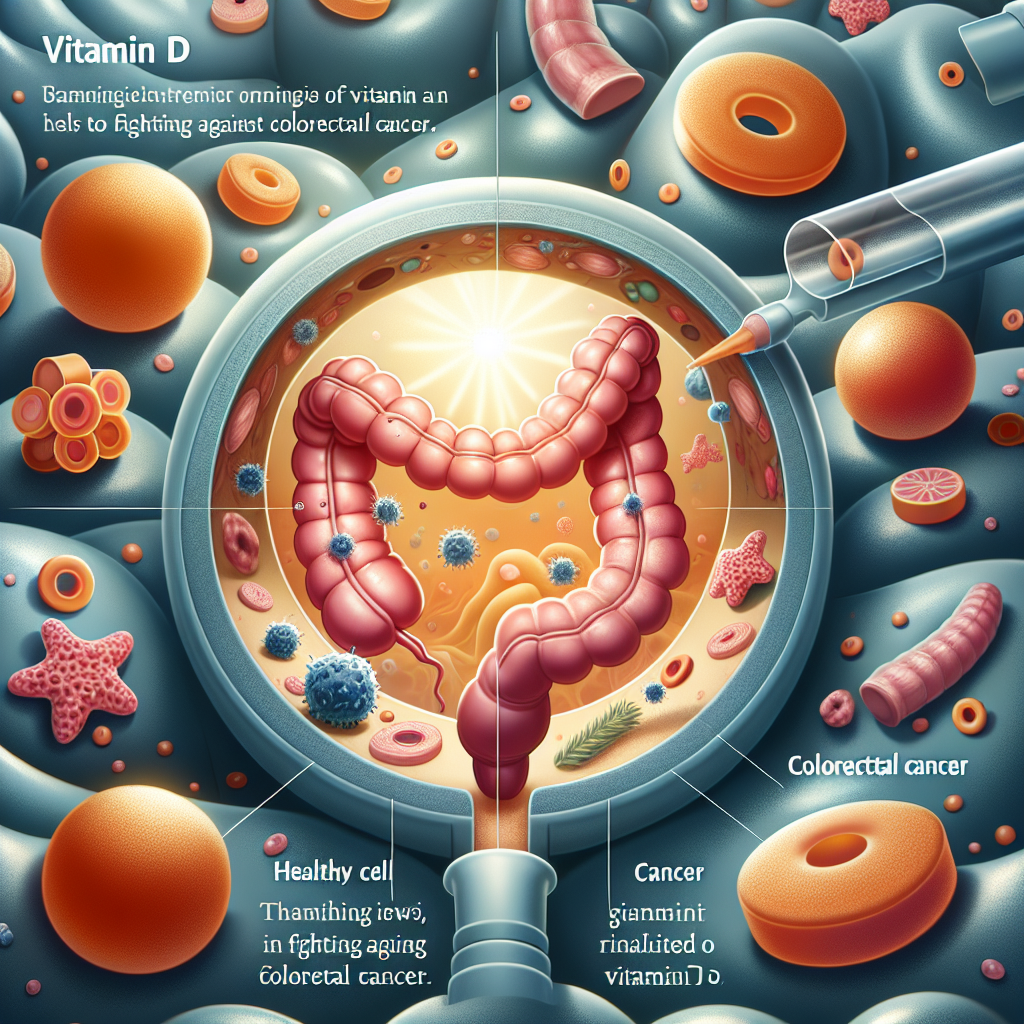Vitamin D: A Key Ally in Combating Colorectal Cancer
Vitamin D: A Key Ally in Combating Colorectal Cancer
Introduction to Vitamin D’s Role
Recent studies have highlighted the significant role of Vitamin D in the fight against colorectal cancer. This essential nutrient, known for its benefits in bone health, is now being recognized for its potential in cancer prevention and management.
How Vitamin D Helps
Vitamin D contributes to cancer prevention through several mechanisms:
- Cell Growth Regulation: It helps regulate cell growth and differentiation, reducing the risk of cancerous cell development.
- Immune System Support: Enhances the immune system’s ability to detect and destroy cancer cells.
- Inflammation Reduction: Lowers inflammation, which is a known risk factor for cancer progression.
Research Findings
Recent research has provided compelling evidence supporting Vitamin D’s role in reducing colorectal cancer risk:
- Higher levels of Vitamin D are associated with a lower risk of developing colorectal cancer.
- Patients with adequate Vitamin D levels have shown improved survival rates.
- Supplementation of Vitamin D can be a beneficial adjunct to traditional cancer therapies.
Recommendations for Vitamin D Intake
To harness the benefits of Vitamin D in cancer prevention, consider the following recommendations:
- Dietary Sources: Include foods rich in Vitamin D, such as fatty fish, fortified dairy products, and egg yolks.
- Sun Exposure: Moderate sun exposure can help the body synthesize Vitamin D naturally.
- Supplements: Consult with a healthcare provider to determine if Vitamin D supplements are necessary, especially for individuals at higher risk of deficiency.
Conclusion
Vitamin D emerges as a promising ally in the battle against colorectal cancer, offering benefits that extend beyond traditional cancer treatments. By understanding and optimizing Vitamin D intake, individuals can potentially reduce their risk and improve outcomes in colorectal cancer management.














